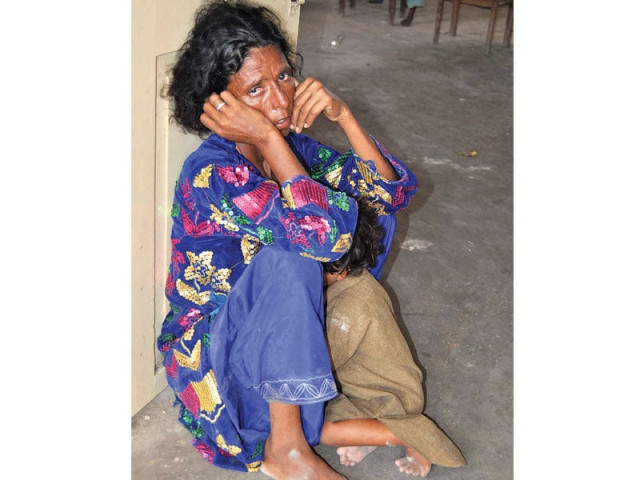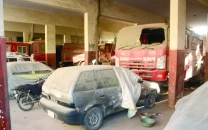‘People are surviving on tea in Badin because there is no bread’
AKU holds a two-day symposium on social and economic determinants of health.

In Badin they survive on tea and sugar because they kill the urge for solid food like roti. It was here that economist Kaiser Bengali met a woman who prayed each day that her children died because she could not feed them.
A lifetime of observing Pakistan’s poor has led him to believe that unless villages are connected to key cities and schools are fixed, we will never see social development and an improvement in health. In fact, Bengali decided to become an economist when he was 10 years old because of the niggling question: why are people poor. “I realised much later in my life that the answer lies not in economics, but in politics,” Dr Bengali said while speaking at length on the politics of social development at the start of a two-day symposium on ‘Social and Economic Determinants of Health’ at the Aga Khan University on Monday.
One of the lessons he learnt from the floods was that the feudal landlords do not draw their power from the amount of land they own, but from the control over their people. Herein lies Bengali’s solution: If the villages are connected via roads to key cities, villagers would have the choice to set themselves free.
“Poverty has a direct impact on health,” he emphasised. For example, when there is a cancer patient or dialysis patient in the household who requires medical attention for a prolonged period of time, the entire household tends to slide into poverty. “Not having a public support system is a cause for poverty.” It is almost as if apartheid has been created in Pakistan, especially in the education sector. “Surprisingly, we found out that the non-rich children supported democracy, while the English school-going elite did not,” Bengali observed.
He blamed neo-liberalism for this state of affairs and the mushroom growth of private universities that offer MBA programmes as a sign of decline in Pakistan’s fractured society.
“We are a nation who wants to consume without producing anything.” He lambasted the elite for creating cocoons in their various DHA societies, while at the same time ignoring the plight of the family of 20, who live in a 20 feet by 12 feet room.
Research:
30 cases of HIV among a group of drug users and their families was tracked down to one individual, who was a deportee from the Gulf region, according to Associate Professor AKU Dr Syed Ali.
Published in The Express Tribune, November 1st, 2011.



















COMMENTS
Comments are moderated and generally will be posted if they are on-topic and not abusive.
For more information, please see our Comments FAQ